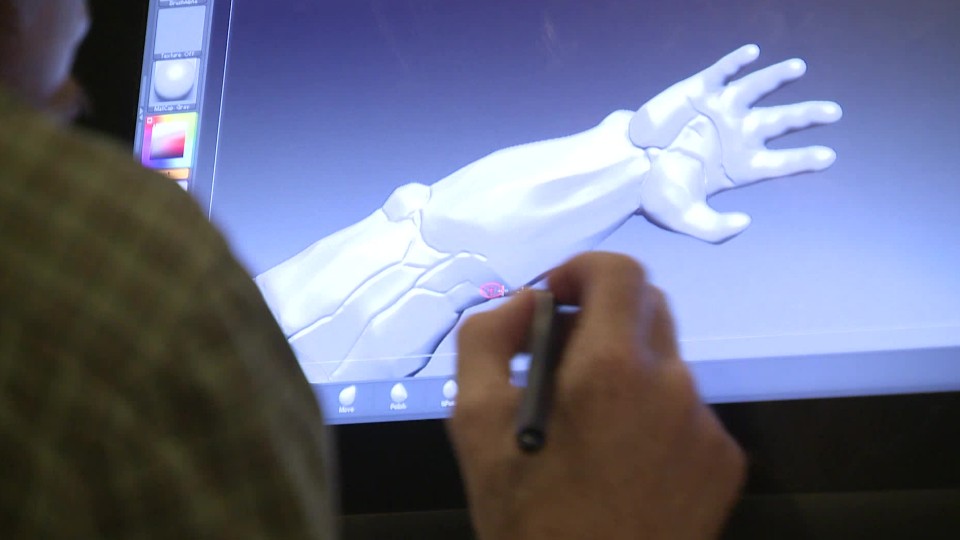Voice Actor/Voice Actress
Voice Actor/Voice Actress
Career Overview
Actors express ideas and portray characters in theater, film, television, and other performing arts media. They interpret a writer’s script to entertain or inform an audience. Voice acting is the art of providing voices for animated characters and radio and audio dramas and comedy, as well as doing voice-overs in radio and television commercials, audio dramas, dubbed foreign language films, video games, puppet shows, and amusement rides.
Education
Although some people succeed in acting without getting a formal education, most actors acquire some formal preparation through a theater company’s acting conservatory or a university drama or theater arts program. Students can take college classes in drama or filmmaking to prepare for a career as an actor. Classes in dance or music may help as well. Actors who do not have a college degree may take acting or film classes to learn their craft. Community colleges, acting conservatories, and private film schools typically offer these classes. Many theater companies also have education programs.
Future Outlook
Employment of actors is projected to grow 3 percent from 2019 to 2029, about as fast as the average for all occupations. The number of Internet-only platforms, such as streaming services, is likely to increase, along with the number of shows produced for these platforms. This growth may lead to more work for actors.
Work Environment
Work assignments are usually short, ranging from 1 day to a few months, and actors often hold another job in order to make a living. They are frequently under the stress of having to find their next job. Voice actors work in their own home studio or in the film company’s studio. Their home studio is usually set up in a vacant space—an unused room, garage or any other place that is quiet. The setup is usually composed of a vocal booth studio, a computer with the appropriate software and Internet connection, microphone and headphones. Since most of the projects for voice actors are available in large cities like Los Angeles and New York, this is also where most of them are located. They may record their voices in their home studio or travel to the film studio to do the job.
Recommended High School Courses
- Performing Arts
- Public Speaking
- Communication
- Education
- English
- Active Listening - Giving full attention to what other people are saying, taking time to understand the points being made, asking questions as appropriate, and not interrupting at inappropriate times.
- Critical Thinking - Using logic and reasoning to identify the strengths and weaknesses of alternative solutions, conclusions or approaches to problems.
- Monitoring - Monitoring/Assessing performance of yourself, other individuals, or organizations to make improvements or take corrective action.
- Reading Comprehension - Understanding written sentences and paragraphs in work related documents.
- Social Perceptiveness - Being aware of others' reactions and understanding why they react as they do.
- Speaking - Talking to others to convey information effectively.
- Time Management - Managing one's own time and the time of others.
- Communications and Media - Knowledge of media production, communication, and dissemination techniques and methods. This includes alternative ways to inform and entertain via written, oral, and visual media.
- Customer and Personal Service - Knowledge of principles and processes for providing customer and personal services. This includes customer needs assessment, meeting quality standards for services, and evaluation of customer satisfaction.
- English Language - Knowledge of the structure and content of the English language including the meaning and spelling of words, rules of composition, and grammar.
- Fine Arts - Knowledge of the theory and techniques required to compose, produce, and perform works of music, dance, visual arts, drama, and sculpture.
- Psychology - Knowledge of human behavior and performance; individual differences in ability, personality, and interests; learning and motivation; psychological research methods; and the assessment and treatment of behavioral and affective disorders.
- Sociology and Anthropology - Knowledge of group behavior and dynamics, societal trends and influences, human migrations, ethnicity, cultures and their history and origins.
- Fluency of Ideas - The ability to come up with a number of ideas about a topic (the number of ideas is important, not their quality, correctness, or creativity).
- Memorization - The ability to remember information such as words, numbers, pictures, and procedures.
- Near Vision - The ability to see details at close range (within a few feet of the observer).
- Oral Comprehension - The ability to listen to and understand information and ideas presented through spoken words and sentences.
- Oral Expression - The ability to communicate information and ideas in speaking so others will understand.
- Originality - The ability to come up with unusual or clever ideas about a given topic or situation, or to develop creative ways to solve a problem.
- Problem Sensitivity - The ability to tell when something is wrong or is likely to go wrong. It does not involve solving the problem, only recognizing there is a problem.
- Selective Attention - The ability to concentrate on a task over a period of time without being distracted.
- Speech Clarity - The ability to speak clearly so others can understand you.
- Speech Recognition - The ability to identify and understand the speech of another person.
- Written Comprehension - The ability to read and understand information and ideas presented in writing.
- Collaborate with others to prepare or perform artistic productions.
- Entertain public with comedic or dramatic performances.
- Study scripts to determine project requirements.
- Practice athletic or artistic skills.
- Audition for roles.
- Perform music for the public.
- Collaborate with others to determine technical details of productions.
- Promote products, activities, or organizations.
- Write material for artistic or entertainment purposes.
- Inform viewers, listeners, or audiences.
- Construct distinctive physical objects for artistic, functional, or commercial purposes.
Related Careers
References
PayScale, Inc., https://www.payscale.com/.
U.S. Bureau of Labor Statistics, Office of Occupational Statistics and Employment Projections, https://www.bls.gov/emp/.
"voice actor." Definitions.net. STANDS4 LLC, 2020. Web. 8 Oct. 2020. https://www.definitions.net/definition/voice+actor.
“How To Become A Voice Actor.” Career Igniter, https://www.careerigniter.com/careers/voice-actor/. 15 Nov. 2018.
“27-2011.00 - Actors.” O*NET OnLine, National Center for O*NET Development, http://www.onetonline.org/link/summary/27-2011.00. Accessed 8 October 2020.
O*NET OnLine, National Center for O*NET Development, https://www.onetonline.org/.

